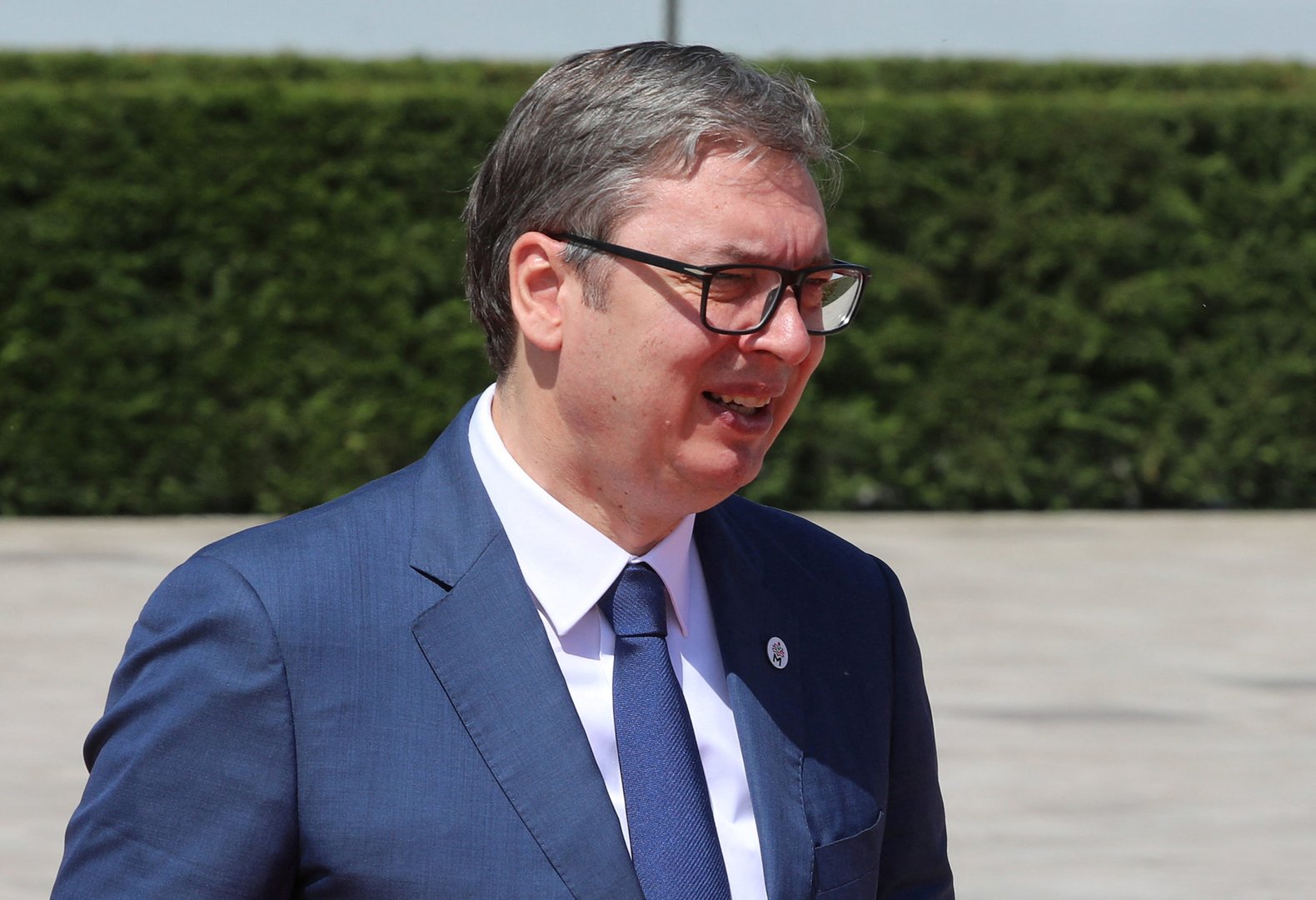The presidents of Kosovo and Serbia held talks on Thursday on resolving a political crisis that has spiralled into violence, with the leaders of France and Germany pressing them to take swift steps to reduce tensions.
Kosovo’s Vjosa Osmani and Serbia’s Aleksandar Vucic met briefly in the presence of French President Emmanuel Macron and German Chancellor Olaf Scholz and the European Union’s foreign policy chief on the sidelines of a summit in Moldova.
The EU and the United States have expressed alarm at the latest in a long-line of crises between Kosovo’s ethnic Albanian-dominated government and ethnic Serbs who are a majority in the north.
Violence flared on Monday after Kosovo authorities, backed by special police units, installed ethnic Albanian mayors in offices in northern municipalities. The mayors had been elected on turnout of just 3.5% after Serbs boycotted local polls.
The clashes wounded 30 NATO peacekeeping troops and 52 Serb protesters.
Speaking after the meeting with Vucic, Osmani accused the Serbian leader of “whining and complaining and … not telling the truth”. But she said Kosovo could hold new elections in the north with Serb participation if they were triggered legally.
That would fulfil one of the conditions set out by Macron and Scholz for resolving the crisis.
“It’s important that everyone involved does everything possible to get to a de-escalation,” Scholz told reporters after the summit of the European Political Community, a forum established last year that brings together more than 40 leaders.
Osmani said “a solution for de-escalation is very close” but Belgrade would also have to respect commitments it made under a deal sealed in March to put relations between the two sides, who fought a war in the 1990s, on a more normal footing.
“We need to ensure that the focus is on the full implementation of the agreement, not just parts of it,” she said.
Macron said Paris and Berlin had called for the organisation of new elections in the four northern municipalities with Serb participation “as soon as possible”.
He said they also urged Kosovo to move ahead with a commitment to create an association of Serb municipalities, seen as a way to give Serbs in the north more self-government.
Macron said they had asked both sides to come back next week with “clear answers”.
Vucic left the summit without commenting on the meeting with Osmani.
Earlier in the day, neither leader had expressed any desire to meet with the other, before relenting under international pressure.
They did not acknowledge each other on arrival at the summit even as they stood just metres apart on the red carpet.
Vucic said Kosovo authorities should withdraw “alleged mayors” from the north and declared the Kosovo special police units were there illegally.
“Serbia will do its best and its utmost to de-escalate the situation, which means that we’ll try to persuade Serbs to progress calmly and peacefully,” he said.
“They’re very determined,” he added. “They want to see the back of the special police units.”
For her part, Osmani said Belgrade was trying to destabilise Kosovo as it had failed to come to terms with Kosovo’s 2008 declaration of independence from Serbia.
She accused Vucic of backing criminal gangs in northern Kosovo – an allegation Belgrade has denied.
Kosovo Prime Minister Albin Kurti has been the driving force behind operations in the north, leading to strong international criticism, particularly from the United States, long Kosovo’s staunchest ally.
NATO decided to deploy 700 additional peacekeepers to Kosovo in response to the crisis and the alliance’s secretary-general, Jens Stoltenberg, said on Thursday it was ready to send more.
“NATO will remain vigilant. We will be there to ensure a safe and secure environment, and also to calm down and reduce tensions”, he told reporters on the sidelines of a NATO foreign ministers’ meeting in Oslo.







Click here to change your cookie preferences